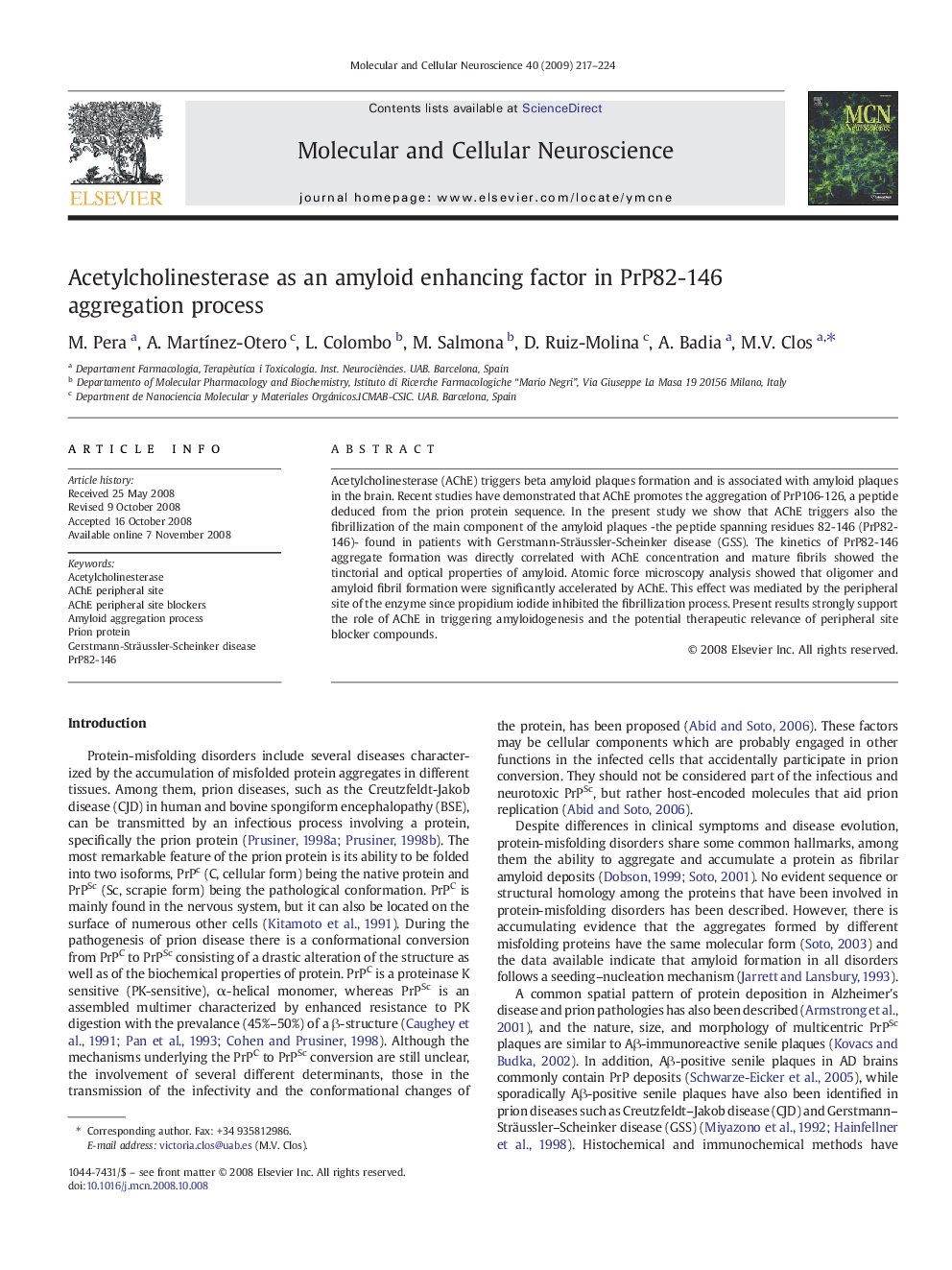| Article ID | Journal | Published Year | Pages | File Type |
|---|---|---|---|---|
| 10956717 | Molecular and Cellular Neuroscience | 2009 | 8 Pages |
Abstract
Acetylcholinesterase (AChE) triggers beta amyloid plaques formation and is associated with amyloid plaques in the brain. Recent studies have demonstrated that AChE promotes the aggregation of PrP106-126, a peptide deduced from the prion protein sequence. In the present study we show that AChE triggers also the fibrillization of the main component of the amyloid plaques -the peptide spanning residues 82-146 (PrP82-146)- found in patients with Gerstmann-Sträussler-Scheinker disease (GSS). The kinetics of PrP82-146 aggregate formation was directly correlated with AChE concentration and mature fibrils showed the tinctorial and optical properties of amyloid. Atomic force microscopy analysis showed that oligomer and amyloid fibril formation were significantly accelerated by AChE. This effect was mediated by the peripheral site of the enzyme since propidium iodide inhibited the fibrillization process. Present results strongly support the role of AChE in triggering amyloidogenesis and the potential therapeutic relevance of peripheral site blocker compounds.
Related Topics
Life Sciences
Biochemistry, Genetics and Molecular Biology
Cell Biology
Authors
M. Pera, A. MartÃnez-Otero, L. Colombo, M. Salmona, D. Ruiz-Molina, A. Badia, M.V. Clos,
